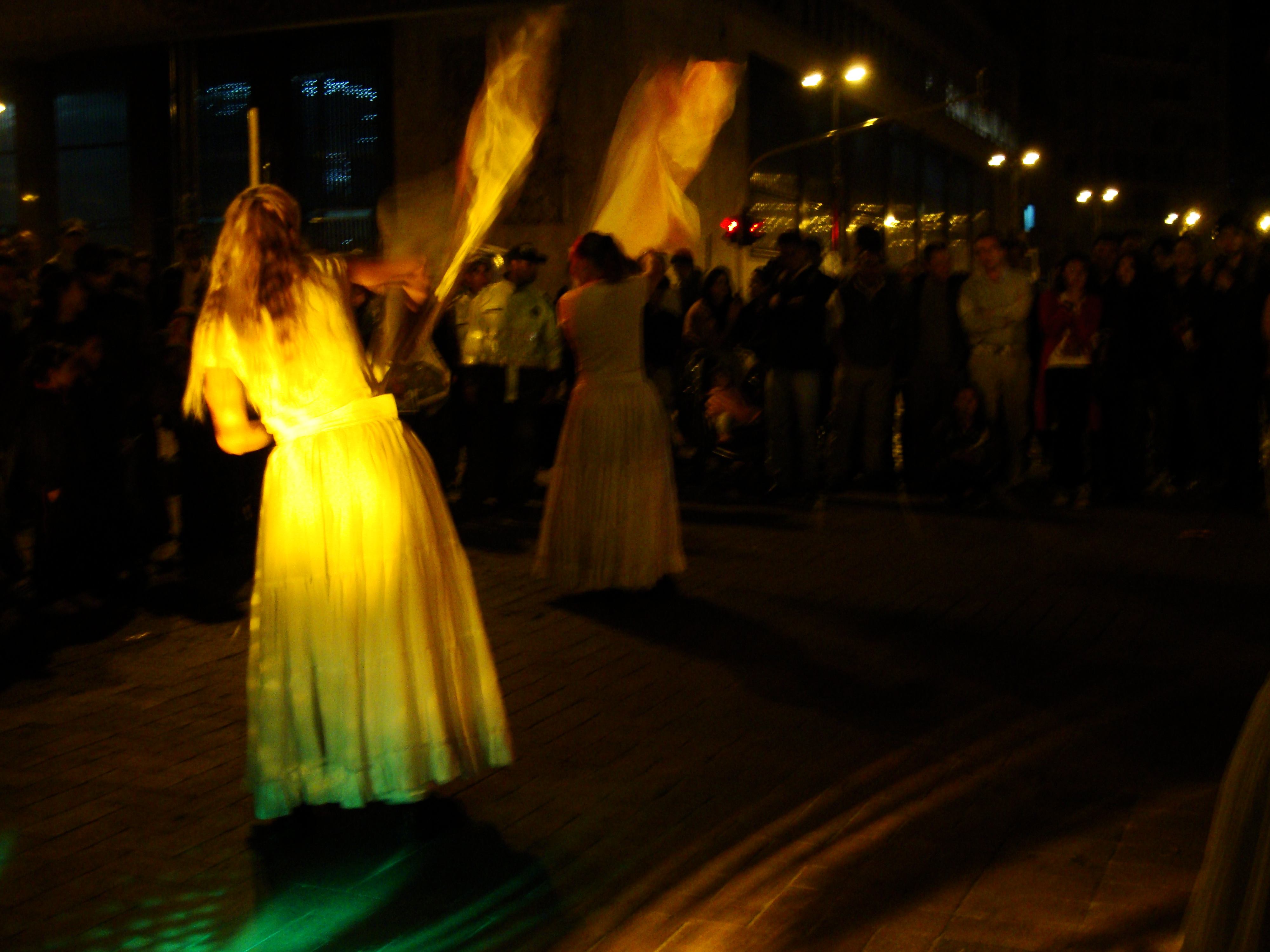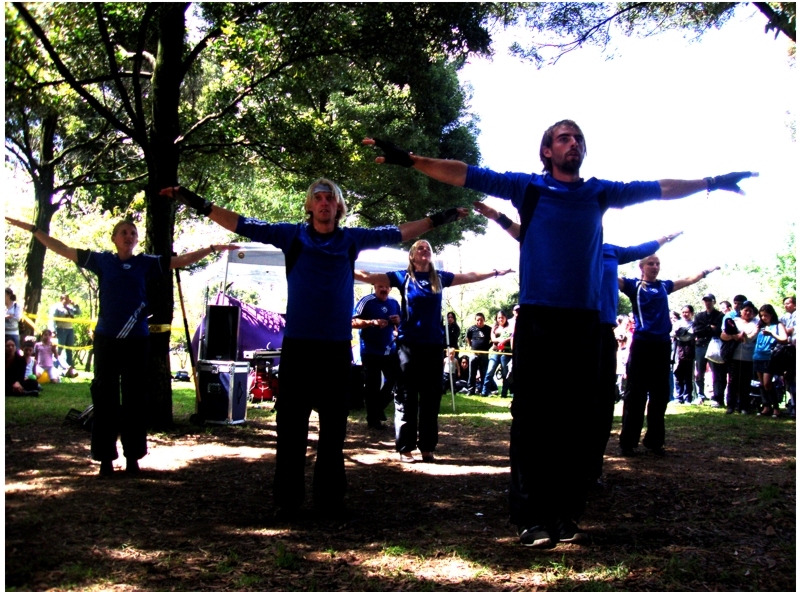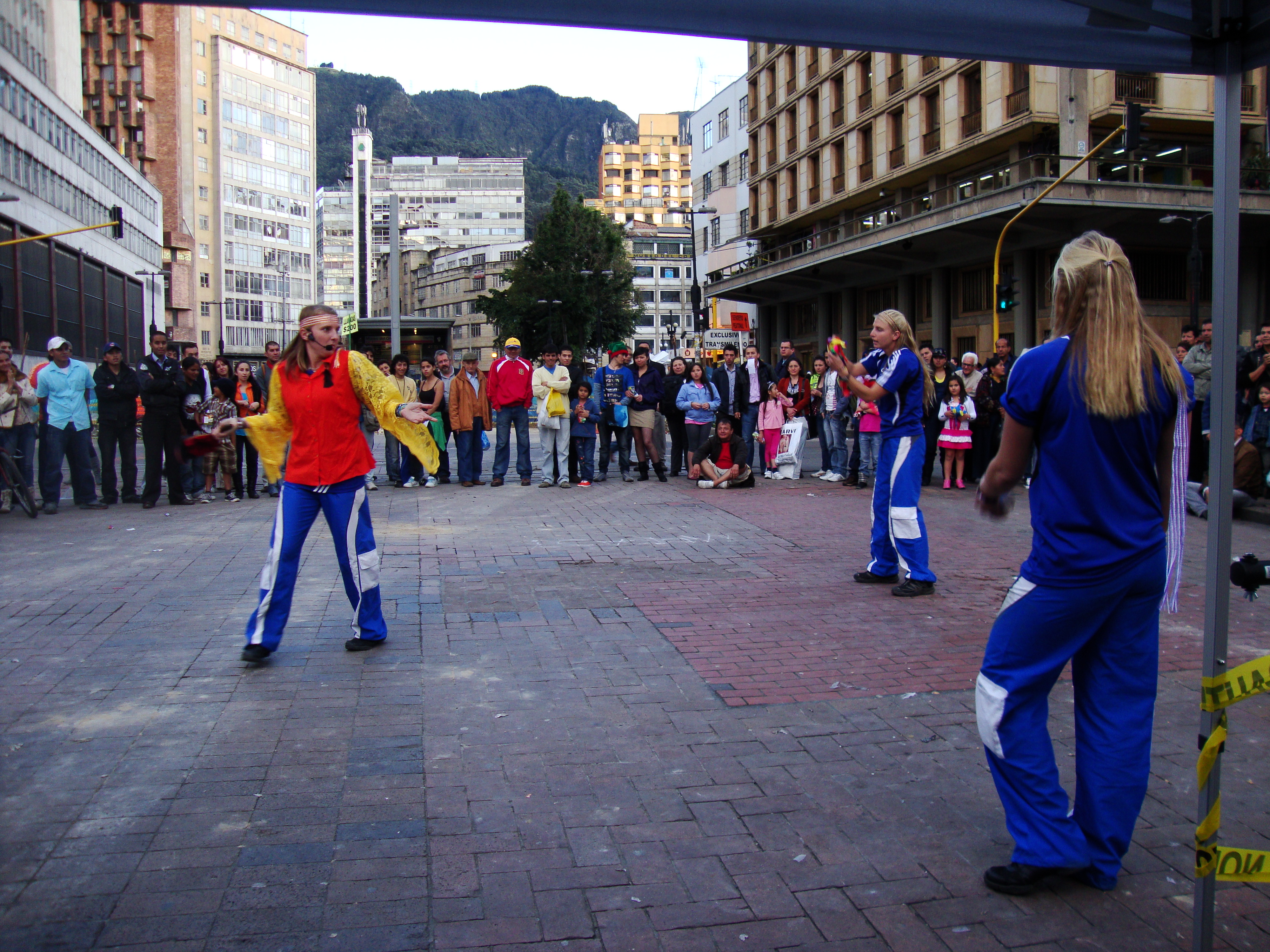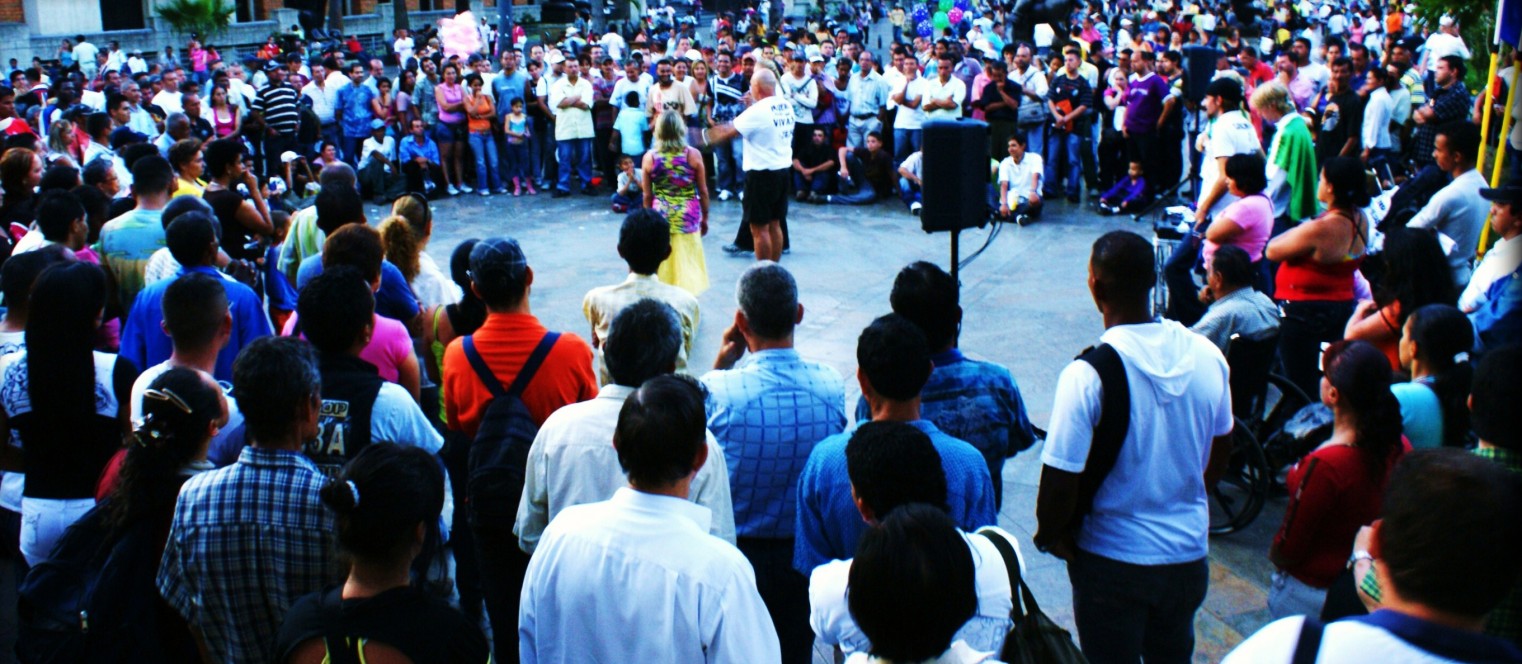As well as working with and performing for various organizations and entities, public and private, we always have and always will continue to focus on the streets. 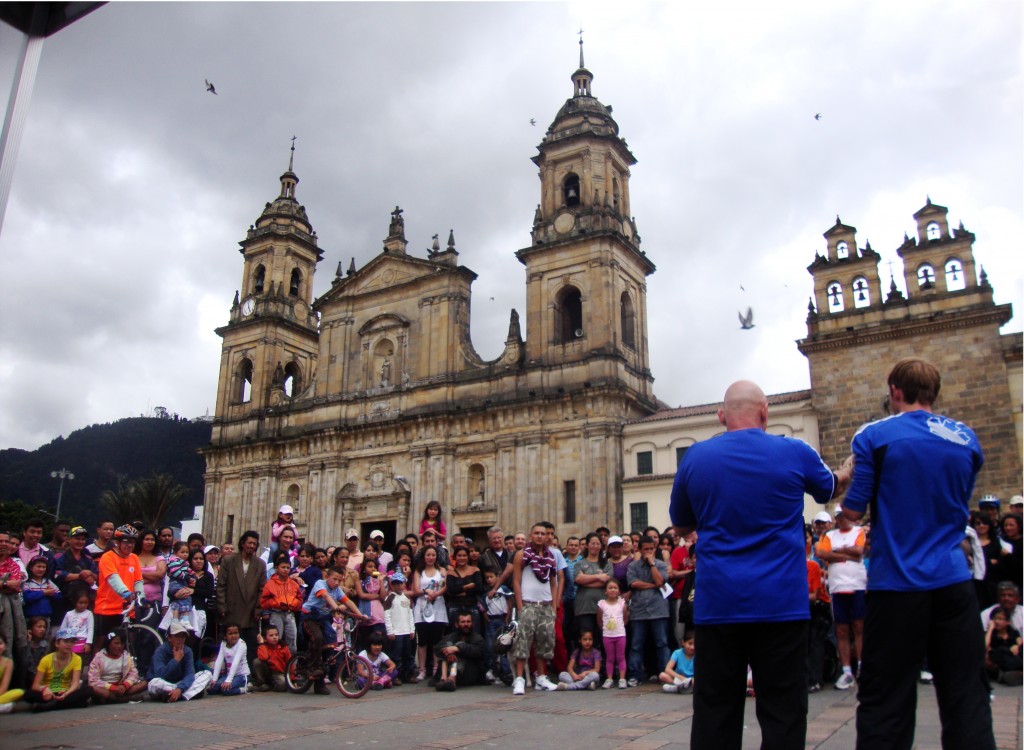
Every city and town, no matter how small, in South American countries, has a central plaza or park designed for large crowds of people to be able to pass through or congregate for special events. Sometimes it is necessary to get permission from local government offices, other times officials grant us on the spot authorization. It is our unique privilege to be able to arrive in a city and set up an entire presentation from the back of our van, utilizing public spaces to put on a performance that appeals to every demographic from all walks of life and leaves a lasting impact due to its spontaneous and unexpected nature. The sight of a large American family setting up equipment piques the curiosity of passers-by and the high-energy dance music we play creates an excitement and anticipation to see what’s next. Using music, dance and drama as our platform, we are able to convey the simple message of the Gospel to thousands of people in the space of an afternoon.
Performing downtown in an uncontrolled environment presents its own set of challenges and benefits . While it is often extremely difficult and quite dangerous, it is worth every effort. There is no captive audience on the street so our program is fast paced and multi-themed, with the aim of grabbing the attention of those walking by. We play a wide range of music, constantly changing it up so as to appeal to both young and old. It is a constant challenge to interchange magic and comedy with skits and choreographies that communicate the reality of Jesus as opposed to shallow platitudes of token religion, the former opening people up to the latter. In dealing with a culture rightly wary of money-seeking preachers, we have found that laughter and humility go a long way in helping people trust you. We constantly inform the crowds that we don’t want their money and are not here to promote a new church or religion. Watching a funny routine where a dog chases a clown instantly lets people know we’re not what they were expecting. Our disposition conveys that our presentation is not about us telling you how you should be but our family experiencing together with yours the life and the joy that the living Jesus offers.
. While it is often extremely difficult and quite dangerous, it is worth every effort. There is no captive audience on the street so our program is fast paced and multi-themed, with the aim of grabbing the attention of those walking by. We play a wide range of music, constantly changing it up so as to appeal to both young and old. It is a constant challenge to interchange magic and comedy with skits and choreographies that communicate the reality of Jesus as opposed to shallow platitudes of token religion, the former opening people up to the latter. In dealing with a culture rightly wary of money-seeking preachers, we have found that laughter and humility go a long way in helping people trust you. We constantly inform the crowds that we don’t want their money and are not here to promote a new church or religion. Watching a funny routine where a dog chases a clown instantly lets people know we’re not what they were expecting. Our disposition conveys that our presentation is not about us telling you how you should be but our family experiencing together with yours the life and the joy that the living Jesus offers.
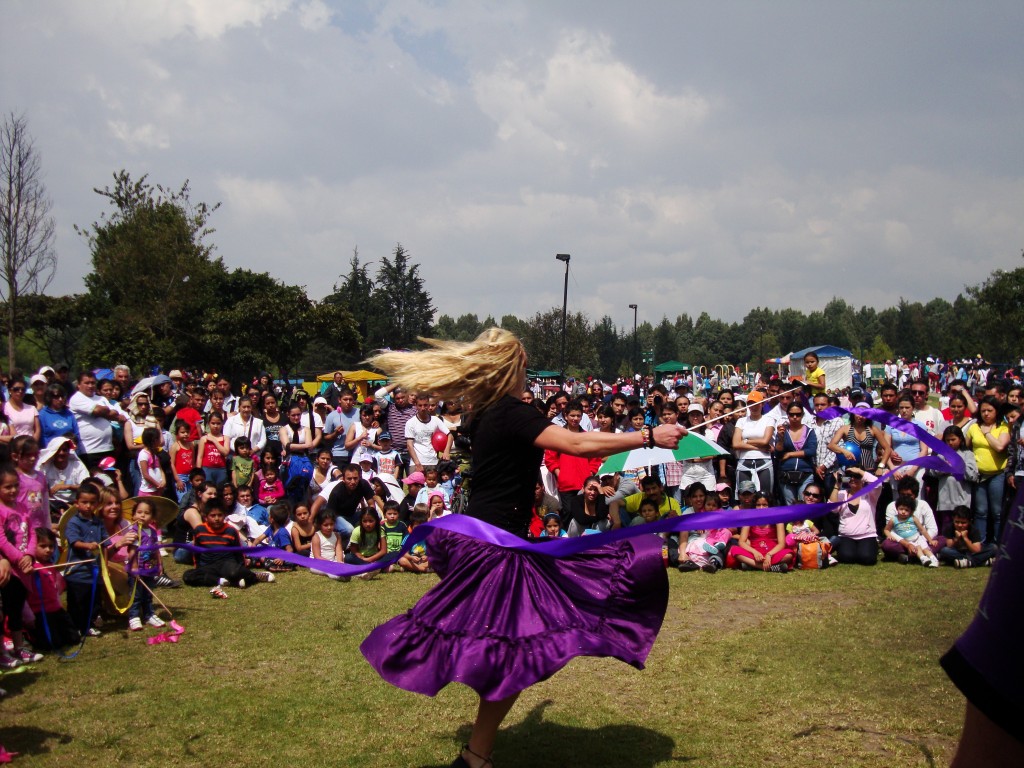 The unpredictability of the street environment has led to some memorable moments, some great, some not so much. In a mountain town on the border, in the middle of a performance for a crowd of some 600, a television crew interrupted and requested our permission to film the rest of the presentation and a synopsis of our message for broadcast on the news later that week. While performing in a park in one of the countries’ largest and most violent cities, we had to pause for a moment as a knife fight broke out, sending people running to safety. When you put yourself in a place where everyone from the local drunk to the mayor can see you and interact with you, there’s no telling what can come out of any given situation. It’s this close contact, one on one, unpredictable atmosphere that, while leaving us vulnerable to extreme circumstances, provides the best opportunity to profoundly impact the most people in the shortest amount of time. Following every performance are lines of individuals, waiting to receive bibles, music CDs or just share their story.
The unpredictability of the street environment has led to some memorable moments, some great, some not so much. In a mountain town on the border, in the middle of a performance for a crowd of some 600, a television crew interrupted and requested our permission to film the rest of the presentation and a synopsis of our message for broadcast on the news later that week. While performing in a park in one of the countries’ largest and most violent cities, we had to pause for a moment as a knife fight broke out, sending people running to safety. When you put yourself in a place where everyone from the local drunk to the mayor can see you and interact with you, there’s no telling what can come out of any given situation. It’s this close contact, one on one, unpredictable atmosphere that, while leaving us vulnerable to extreme circumstances, provides the best opportunity to profoundly impact the most people in the shortest amount of time. Following every performance are lines of individuals, waiting to receive bibles, music CDs or just share their story.
The majority of invitations we receive, from the Catholic Seminary to the Evangelical half-way house to the Center for the Disabled, come from that director or social worker or patient having seen us on the streets and wanting to give what they experienced in our crowd to those closest to their heart. When in a city for a longer period of time, we often perform in the same place on the same day to provide a sense of continuity and to give people the chance bring family and friends or approach us with questions or requests.
The homeless quickly learn that if they come, there is always a sandwich, hot dog or roll to be had as well as a few words of encouragement and someone who remembers their name. Once we identify those on the street who have no home, are with children or have special needs and are not an alcoholic or addict, we make an effort to visit them and help supply their basic needs. For those who have a substance abuse problem, we carry bags of bread, fruit and juice to make sure they don’t go hungry while at the same time ensuring they don’t receive money with which to feed their habit. On the basis of these relationships, we have been able to help certain individuals that were on the streets get medical care, find a job or at the very least, by bringing them into the crowd and pointing out to the public the need that surrounds them, their lunch on a daily basis provided by others who have met them through us. It’s amazing the number of people who, once confronted with their moral obligation to their fellow man, will follow our example and help and feed those in need.
